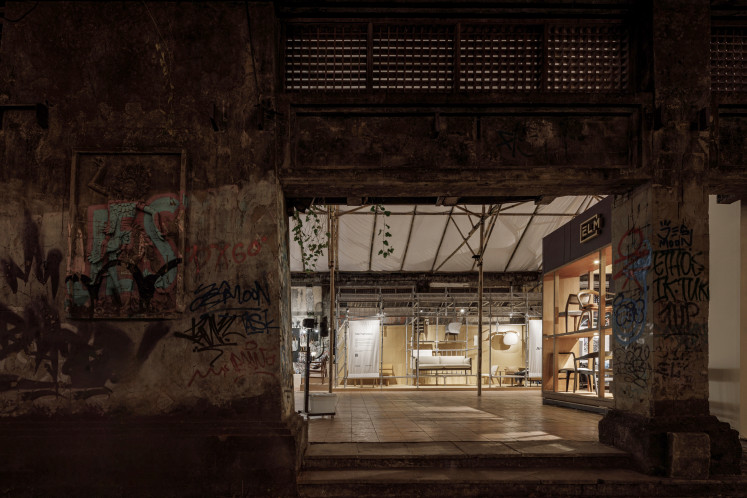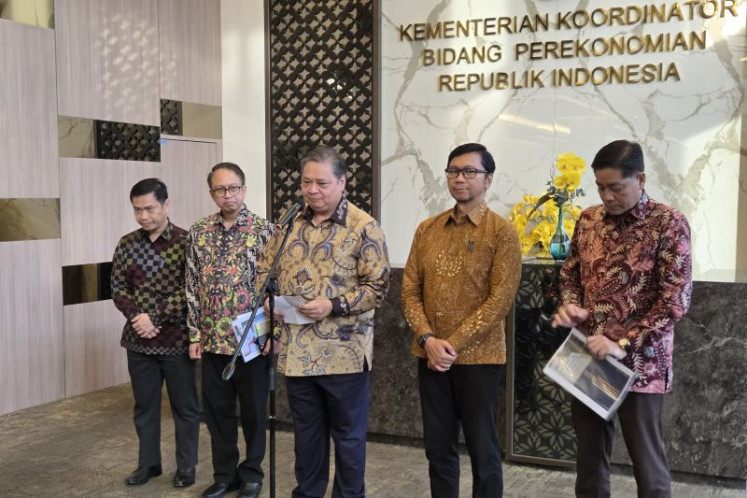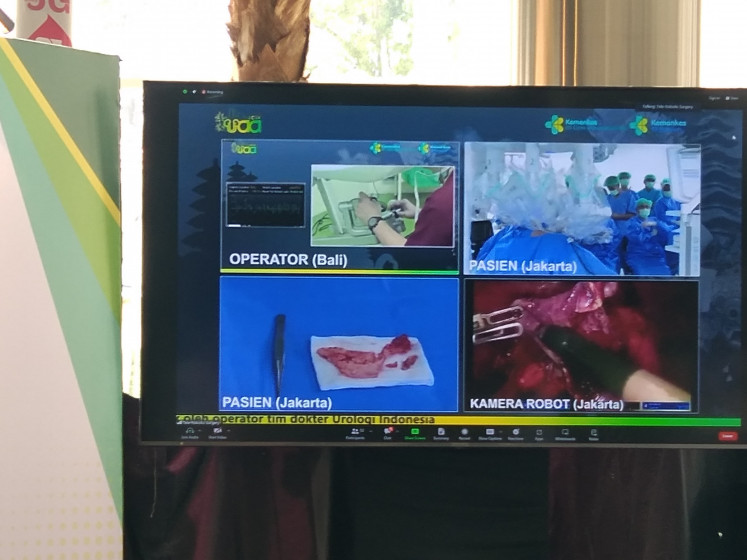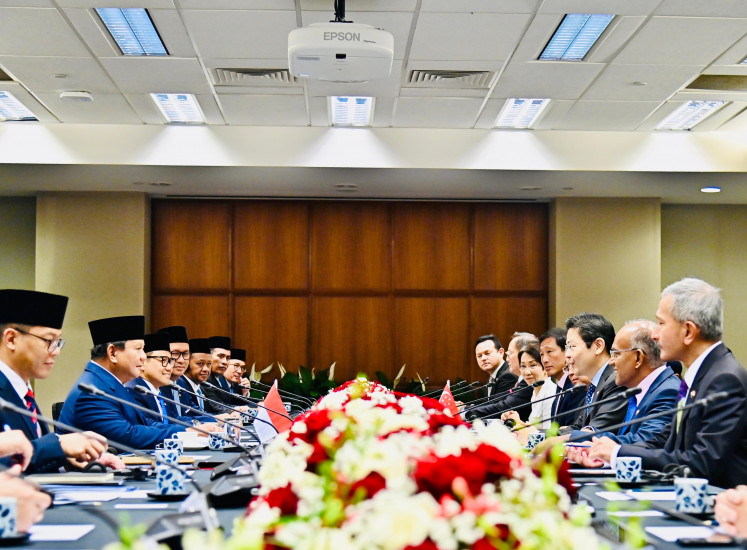Popular Reads
Top Results
Can't find what you're looking for?
View all search resultsPopular Reads
Top Results
Can't find what you're looking for?
View all search resultsRus Alit: Keeping water flowing in rural areas
Simple, smart technologies can change people’s lives.
Change text size
Gift Premium Articles
to Anyone
 Traditional tech: Rus Alit poses with a water tank. It is a pre-filter system where murky water is allowed to settle before slowly entering the sand filter. (Bill Dalton/File)
Traditional tech: Rus Alit poses with a water tank. It is a pre-filter system where murky water is allowed to settle before slowly entering the sand filter. (Bill Dalton/File)
I
n 1972, when Rus Alit returned to his village deep in the countryside of west Bali, he saw elderly people struggling to walk down a ravine for their daily water needs. That was the moment he decided to help and begin looking for alternatives.
Born in Sangketan village in Tabanan district as the 11th child in a poor farming family, after graduating from high school he had the good fortune to study in New Zealand for three years. To make ends meet, he worked as a laboratory assistant and drove a forklift at a milk factory. The overseas experience profoundly changed his life.
Three years later, Rus returned to Bali and soon became directly involved in changing the villagers’ way of life. In 1975, he built a biogas system that enabled people to cook with gas. The first time he struck a match and lit a flame, he was hooked, and so he doubled his efforts of looking into alternative technologies.
From his neighbors, he learned about and simplified age-old farming methods and put them into practice. He even introduced foreign technologies, such as water wheels that generate electricity.
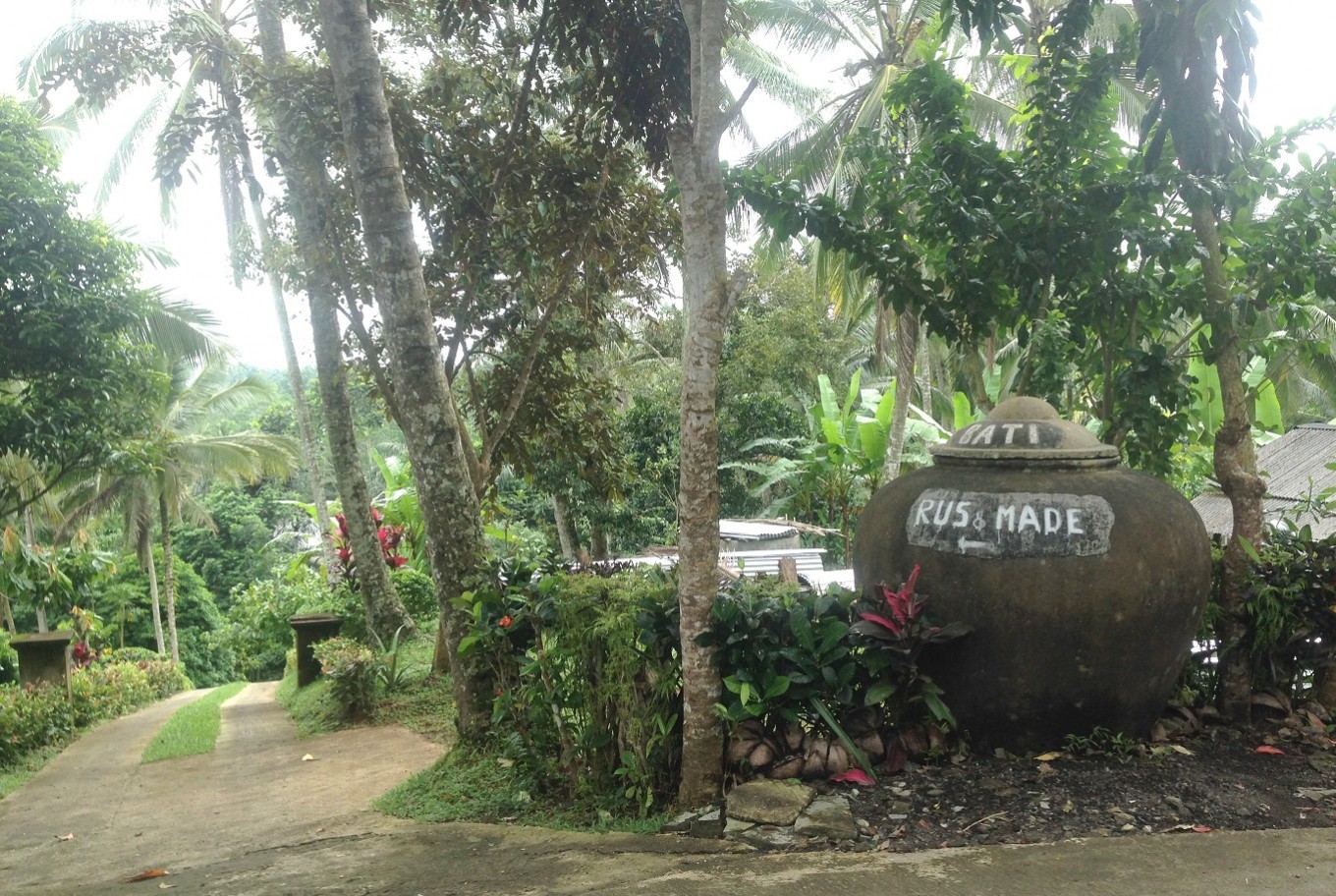
“The most important thing about traditional technology is that it must be simple, affordable and sustainable. Sophisticated technology controls people, but appropriate technology is controlled and used by the people,” he said.
To him, it is a cruel paradox that in Bali inhabitants suffer water shortages even during the wet season when rain falls in torrents but runs off into the sea. One day, a visitor showed him a book on appropriate technology that contained information about a hydraulic ram pump that powers water to a point higher than where the water originally started.
Read also: Local advocate wants locals to benefit more from West Manggarai tourism
A spring near the village — too inaccessible to be used — provided clean water at an amazing rate of 38 drums every 24 hours — more than enough to serve his small mountainous community. In 1978, he tested a prototype of a ram pump that he installed in the village of Sarinbuana.
Rus knew that villagers would initially be skeptical. He would have to prove to them that the pump would work.
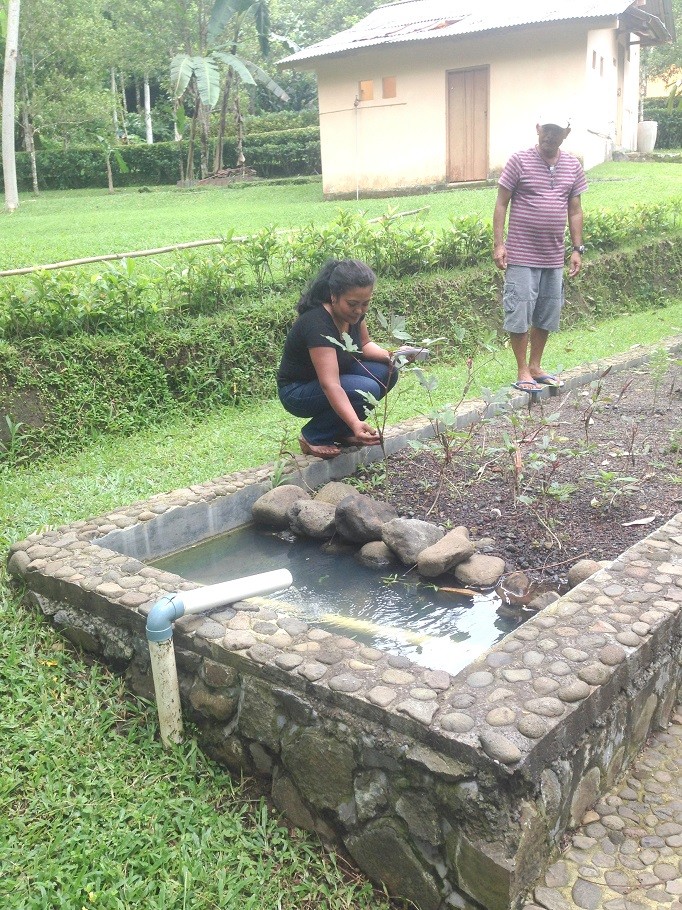
“I took the village heads to see the Sarinbuana pump in use. It’s always easier to show people something than it is to try and explain a system,” he explained.
“When I pushed the valve on that first hand-built pump and the water started to flow uphill into the village, I saw tears in their eyes,” he said.
One man offered to sell his cows to raise the cash need but ed for materials and equipment to install it. The other farmers pledged to repay him after the rice harvest.
In 1981, humanitarian organization World Vision Indonesia in Jakarta hired Rus Alit as a consultant. He later traveled across the country, installing appropriate technology systems until 1996. He would identify the needs of people at the grassroots level before designing practical ways to fulfill their specific needs.
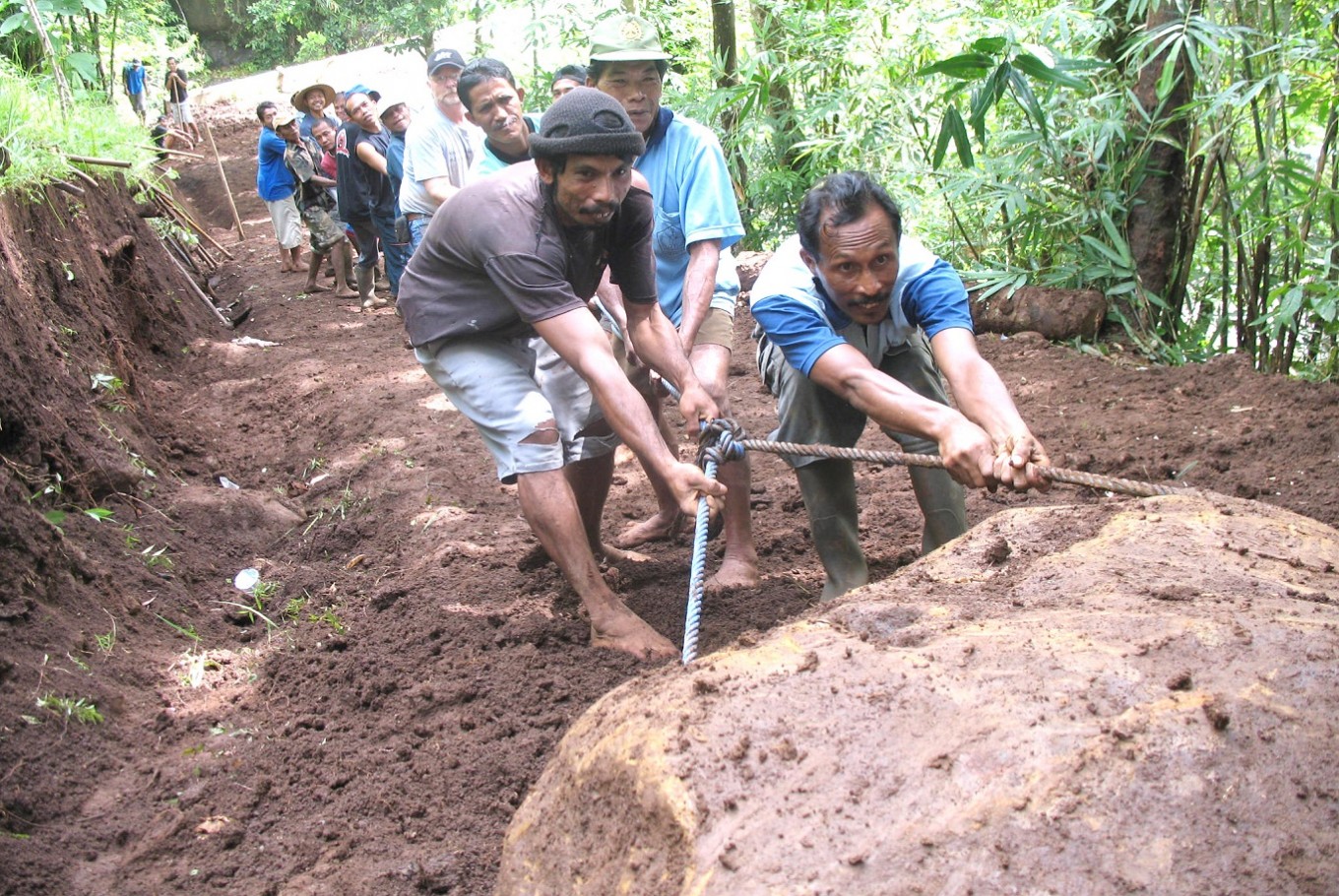
Rus also traveled to the South Pacific, helping to deliver water supplies and micro-hydro and biogas systems. He worked handson in the rural communities of Latin America, Africa, India and China. In these far-flung outposts of civilization, he built roads, bridges and irrigation canals. He installed energy efficient stoves and water purification and food preservation systems.
“I saw people’s lives change. I’m not a master of any trade, I know enough skills to make a difference. There is a great need out there for down-to-earth technologies.”
Read also: It takes a village
In 1987, he established the Bali Appropriate Technology Institute (BATI) learning center near his village in Tabanan.
Presently residing in Perth, he travels between West Australia and Bali. Even at the age of 71, he still spends most of the year fulfilling his mission of bringing innovative technologies that are practical and affordable to people around the world.
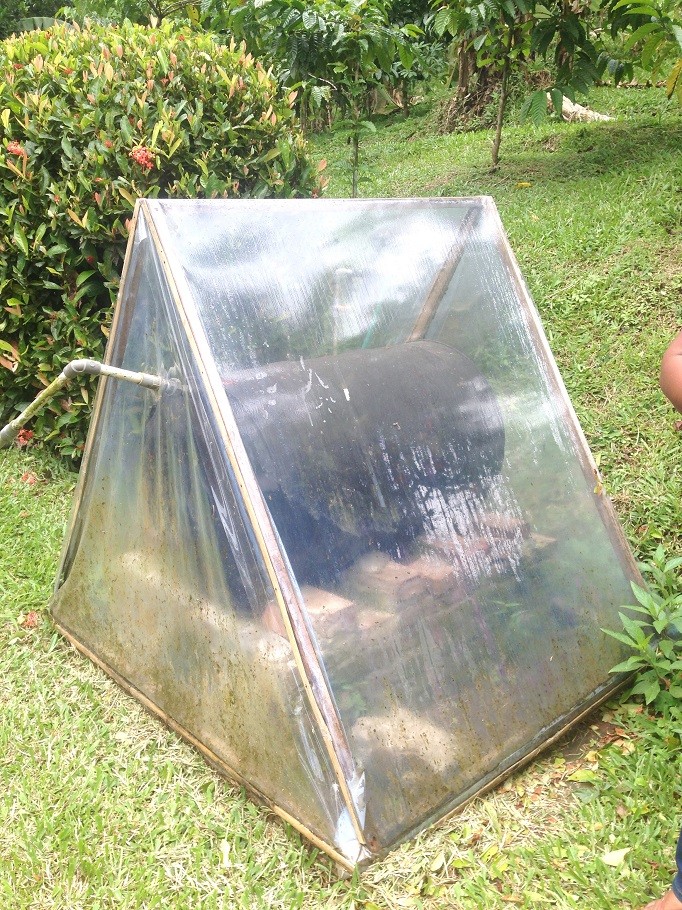
BATI has initiated local community development programs, such as the constructing of dams to divert water for irrigation, and provided employment for villagers in a virgin coconut oil production factory. There are now thousands of his own version of hydraulic ram pumps, dubbed “Rus Pumps,” installed all over Indonesia and the developing world. As many as 60 ram pumps have begun to operate in Timor Leste since he taught a group of students there 12 years ago ago.
BATI does not advertise. News of the institute’s courses and activities are spread by word of mouth. For funding, he works as an international consultant in his fields of expertise and welcomes donors who believe in his approach. Despite having no advertisements, the learning center has attracted people from around the world.
Every February and September, the organization hosts an international mixture of students, scientists and villagers from Timor Leste, Ghana, Rwanda, Central America, Japan and elsewhere in Asia. In a five-day course, they learn about water systems, road and bridge building, micro-enterprises, animal husbandry and sustainable agriculture and other appropriate technologies.
“These skills, not available in universities, are learned hands-on by observing and participating in a completely natural environment,” Rus said.
Old, simple technologies will always stay close to his heart.
“I admire our old way of life. In Bali, we used appropriate technology for generations up until we were exposed to modernization, which in many ways teaches us greed, waste and destruction of our environment.”




